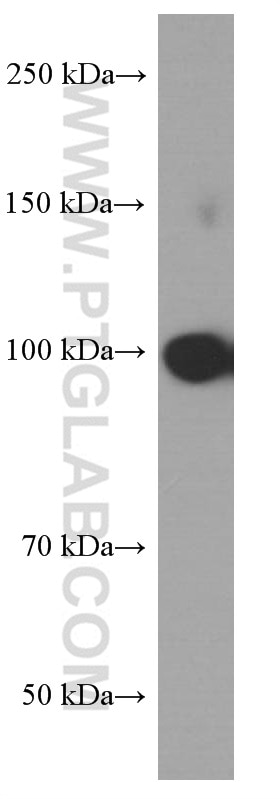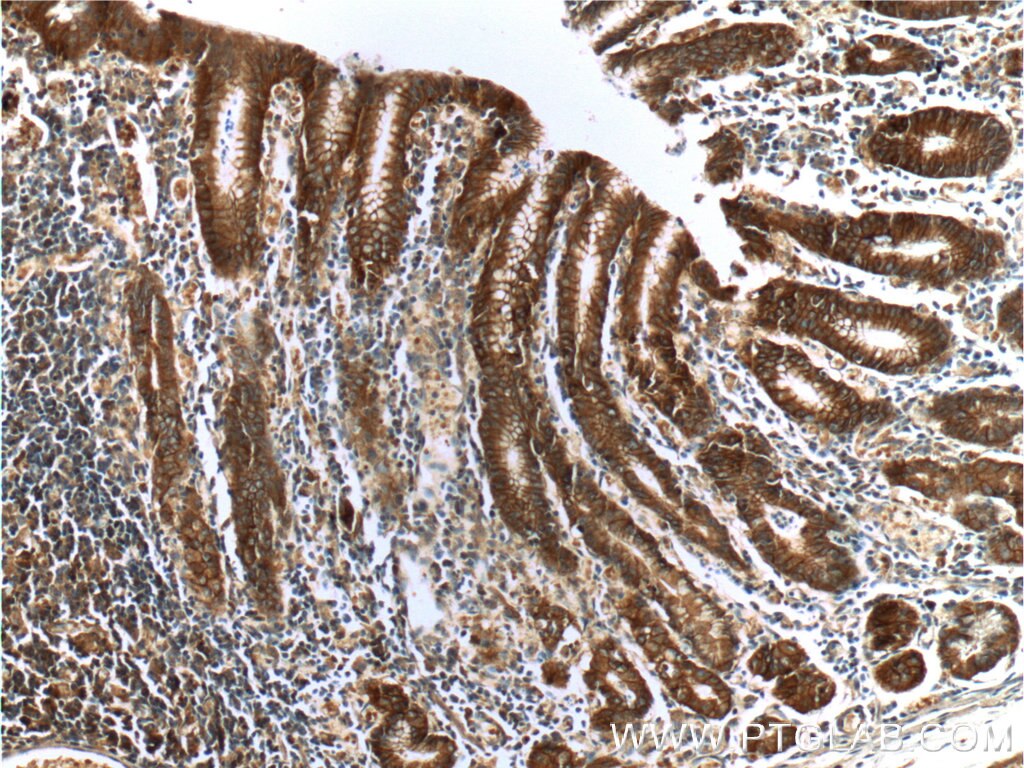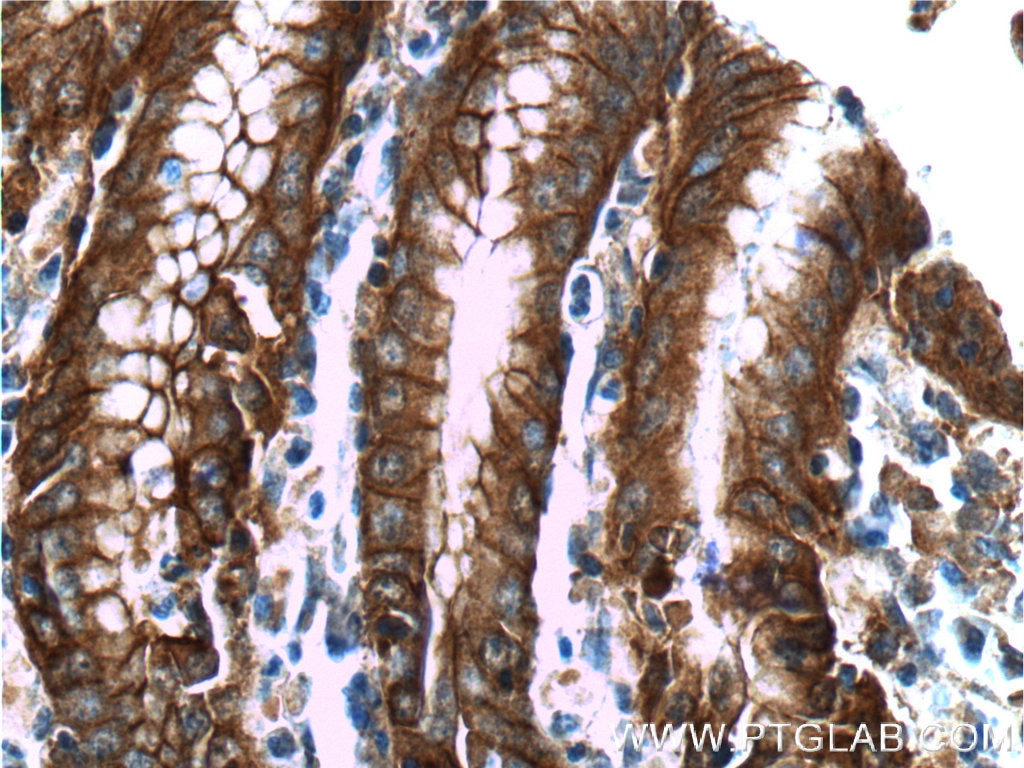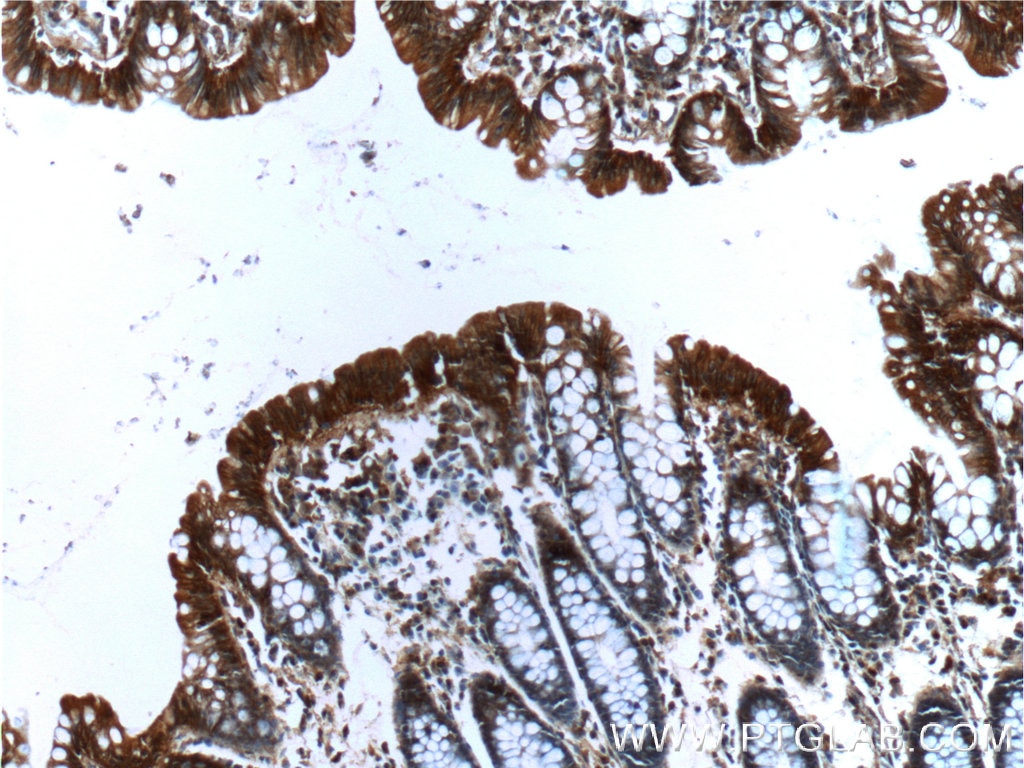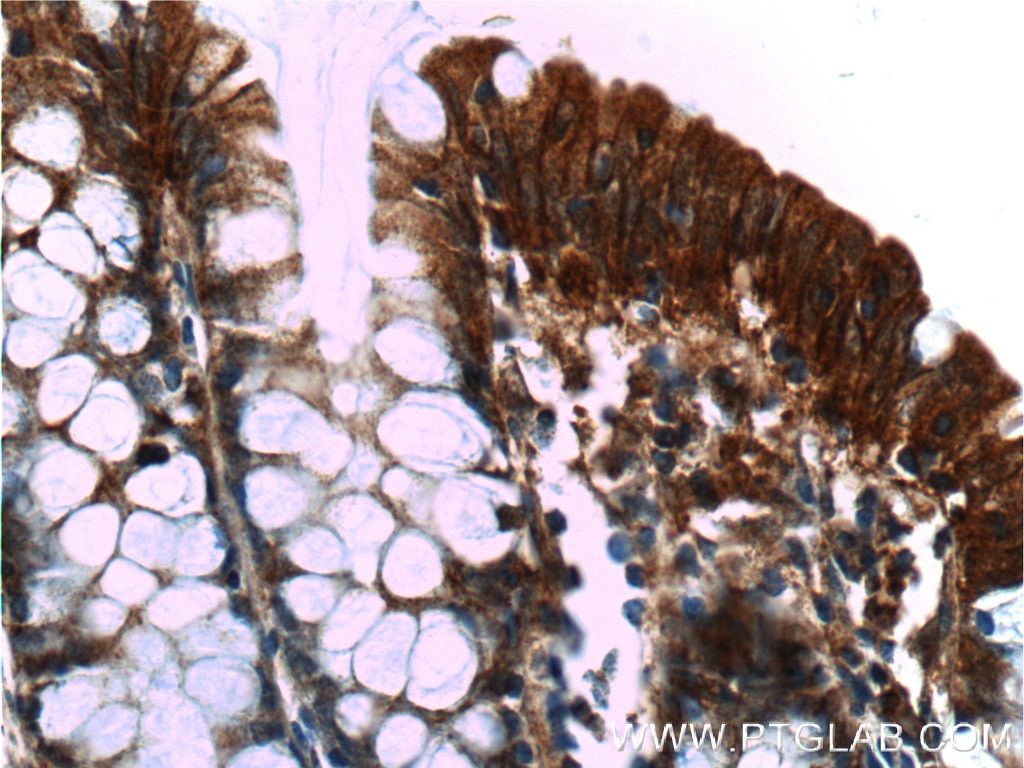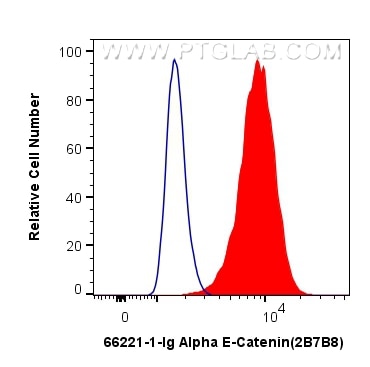Anticorps Monoclonal anti-Alpha E-Catenin
Alpha E-Catenin Monoclonal Antibody for WB, IHC, FC (Intra), ELISA
Hôte / Isotype
Mouse / IgG1
Réactivité testée
Humain, souris
Applications
WB, IHC, FC (Intra), ELISA
Conjugaison
Non conjugué
CloneNo.
2B7B8
N° de cat : 66221-1-Ig
Synonymes
Galerie de données de validation
Applications testées
| Résultats positifs en WB | cellules NIH/3T3 |
| Résultats positifs en IHC | tissu d'estomac humain, tissu de côlon humain il est suggéré de démasquer l'antigène avec un tampon de TE buffer pH 9.0; (*) À défaut, 'le démasquage de l'antigène peut être 'effectué avec un tampon citrate pH 6,0. |
| Résultats positifs en FC (Intra) | cellules MCF-7, |
Dilution recommandée
| Application | Dilution |
|---|---|
| Western Blot (WB) | WB : 1:500-1:2000 |
| Immunohistochimie (IHC) | IHC : 1:50-1:1000 |
| Flow Cytometry (FC) (INTRA) | FC (INTRA) : 0.40 ug per 10^6 cells in a 100 µl suspension |
| It is recommended that this reagent should be titrated in each testing system to obtain optimal results. | |
| Sample-dependent, check data in validation data gallery | |
Applications publiées
| WB | See 2 publications below |
| IHC | See 2 publications below |
Informations sur le produit
66221-1-Ig cible Alpha E-Catenin dans les applications de WB, IHC, FC (Intra), ELISA et montre une réactivité avec des échantillons Humain, souris
| Réactivité | Humain, souris |
| Réactivité citée | Humain, souris |
| Hôte / Isotype | Mouse / IgG1 |
| Clonalité | Monoclonal |
| Type | Anticorps |
| Immunogène | Alpha E-Catenin Protéine recombinante Ag23603 |
| Nom complet | catenin (cadherin-associated protein), alpha 1, 102kDa |
| Masse moléculaire calculée | 906 aa, 100 kDa |
| Poids moléculaire observé | 95-100 kDa |
| Numéro d’acquisition GenBank | BC031262 |
| Symbole du gène | Alpha E-Catenin |
| Identification du gène (NCBI) | 1495 |
| Conjugaison | Non conjugué |
| Forme | Liquide |
| Méthode de purification | Purification par protéine G |
| Tampon de stockage | PBS with 0.02% sodium azide and 50% glycerol |
| Conditions de stockage | Stocker à -20°C. Stable pendant un an après l'expédition. L'aliquotage n'est pas nécessaire pour le stockage à -20oC Les 20ul contiennent 0,1% de BSA. |
Informations générales
Alpha catenin is an essential component of adherens junctions that connects E-cadherin-β-catenin complexes with the actin cytoskeleton. It also recruits a range of other important proteins to developing intercellular junctions. Three alpha catenins exist in human: alpha-E-catenin, alpha-N-catenin, and alpha-T-catenin, which share substantial amino-acid sequence similarity but have distinct tissue distribution. alpha-E-catenin is ubiquitously expressed, alpha-N-catenin is restricted to neuronal tissue, and alpha-T-catenin is primarily expressed in heart tissue. Reduced levels of alpha-E-catenin protein seem to be characteristic of many different human cancers, including malignant tumours of the breast, colon, stomach, oesophagus, bladder and liver. In addition, the loss of alpha-E-catenin often correlates with the degree of tumour differentiation and metastasis.
Protocole
| Product Specific Protocols | |
|---|---|
| WB protocol for Alpha E-Catenin antibody 66221-1-Ig | Download protocol |
| IHC protocol for Alpha E-Catenin antibody 66221-1-Ig | Download protocol |
| Standard Protocols | |
|---|---|
| Click here to view our Standard Protocols |
Publications
| Species | Application | Title |
|---|---|---|
Int J Mol Sci Histological and Immunohistochemical Studies to Determine the Mechanism of Cleft Palate Induction after Palatal Fusion in Mice Exposed to TCDD. | ||
Oncotarget YAP1 enhances cell proliferation, migration, and invasion of gastric cancer in vitro and in vivo. | ||
Mol Med Rep Wild-type KRAS inhibits the migration and invasion of pancreatic cancer through the Wnt/β-catenin pathway |
